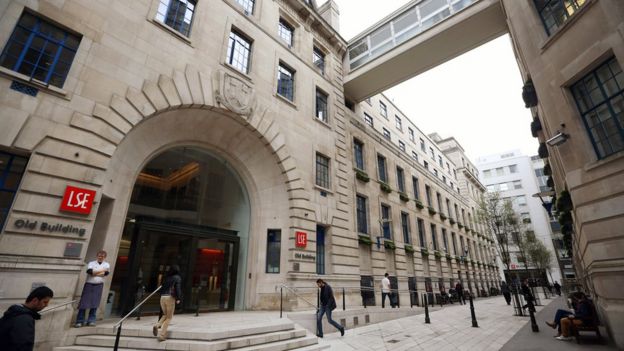To earn more, study medicine or economics, says IFS

If you want to earn a big salary, you would be advised to study medicine or economics, says a report by the Institute for Fiscal Studies (IFS).
Just ten years after graduation, male medical students earned a median wage of £55,000, the research found.
Female medical students also became the highest earners, typically making £45,000 a year.
Where you study also matters: Students of the London School of Economics, Oxford and Cambridge earned the most.
In addition, higher earners tended to come from wealthier backgrounds, the IFS said.
The research was based on the student loan records of 260,000 individuals, whose salaries were tracked over a ten year period up to 2013.
‘Earnings advantage’
Economics was the second most lucrative degree, with male students earning a median salary of £42,000, and women earning £38,000.
By contrast, those who obtained degrees in creative arts had the lowest salaries.
Men earned a median annual wage of £17,900, with women earning £14,500.
The study also showed that graduates are much more likely to have a job – and to earn more – than non-graduates.
Anna Vignoles, one of the report authors, said students should think carefully about what they choose to study.
“Higher education leads to much better earnings than those earned by non-graduates, although students need to realise that their subject choice is important in determining how much of an earnings advantage they will have.”
The study showed that men earned more than women in every discipline, with the exception of European languages and literature, in which women earned more than men.
The gender pay gap was particularly noticeable amongst higher earners, the IFS said.
| Most lucrative degrees, 10 years on | ||
|---|---|---|
| Degree | Women’s salaries | Men’s salaries |
| Medicine | £45,400 | £55,300 |
| Economics | £38,200 | £42,000 |
| Engineering and technology | £23,200 | £31,200 |
| Law | £26,200 | £30,100 |
| Physical Sciences | £24,800 | £29,800 |
| Education | £24,400 | £29,600 |
| Architecture | £22,500 | £28,600 |
| Maths and Computer science | £22,000 | £26,800 |
| Business | £22,000 | £26,500 |
| History and philosophy | £23,200 | £26,500 |
| Social sciences | £20,500 | £26,200 |
| Biological sciences | £23,800 | £25,200 |
| European languages and literature | £26,400 | £25,000 |
| Linguistics and classics | £23,200 | £24,100 |
| Veterinary and agriculture | £18,900 | £21,400 |
| Mass communication | £18,100 | £19,300 |
| Creative arts | £14,500 | £17,900 |
| Base: Median annual salary | ||
| Source: IFS | ||

Universities
The London School of Economics (LSE) was the most lucrative university, according to the study, followed by Cambridge and then Oxford.
Around 10% of male graduates from these institutions were earning more than £100,000 ten years after graduation.
LSE was the only university where 10% of female graduates were in the same position.
However the IFS said that LSE benefited from a focus on high-paying subjects like economics and law.
It said there was also a very strong performance from northern universities like Liverpool, Newcastle and York – even though local labour markets had lower rates of pay than in the South.
In London, Imperial College and Kings College had strong earnings levels.
